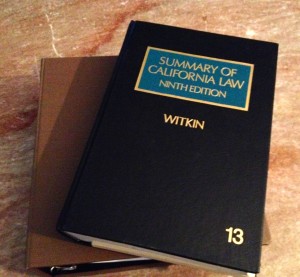Landlord Liability for Commercial Rentals, Part 2
Earlier this week, we began a discussion about a landlord’s potential liability for hazardous conditions in commercial rentals.
In that post, we took a look at the following important factors which impact the landlord’s duty (and also, in many cases, the liability of the tenant in control of the property):
1. The requirement that a landlord (or possessor of land) have actual or constructive knowledge of the dangerous condition.
2. The duty to conduct reasonable inspections of the commercial rental property and any improvements thereon.
3. The fact that, although previous accidents or injuries may put an owner on notice of hazards, California does not follow the so-called “mode of operation” rule, which can create duties (and liabilities) based on certain hazardous uses of commercial property.

Today, we look at a few more factors which may impact a landlord’s liability–or the liability of the tenant in possession and control of property–in the event a hazardous condition on commercial property results in injury or damage. Specifically, factors which may limit the landlord’s liability during, or immediately after the end of, the lease term.
1. If property and improvements were transferred to a tenant in reasonably safe condition, the landlord’s liability for subsequent hazards may be very limited.
Once a tenant takes control of property, the lease may limit the landlord’s ability to enter the premises and make changes (in some cases, including repairs and signage) without the tenant’s permission. This, in turn, creates limitations on what the landlord can do with regard to mitigating hazardous conditions and helping to avoid injuries and other forms of damage. For this reason, the law does not hold commercial landlords liable for all risks of loss or damage occurring after a tenant takes possession of rental premises. The landlord’s liability is further limited if he or she transferred the property and all improvements in reasonably safe condition, and with a reasonable expectation that the property and fixtures would be used as intended and in a reasonably safe manner.
While this limitation doesn’t mean a court will never hold a landlord liable, it does require the injured plaintiff to prove the existence and breach of some specific duty by the landlord, since the law does not require (or, in many cases, permit) the landlord to enter the property at will and take corrective actions.
2. The landlord’s right of inspection during the lease term may impact the landlord’s duty and/or liability.
Even where the landlord retains inspection and entry rights, however, the law generally states that a landlord has a duty to inspect and take action only when:
a. A statutory or regulatory duty requires the landlord to act.
b. The landlord has knowledge (actual or constructive) of a dangerous condition or a need to enter and repair the premises.
c. The lease requires the landlord to act, given the facts and circumstances.
3. At the end or upon renewal of a lease, the landlord has an obligation to inspect commercial property and repair hazardous conditions.
The law does not require the landlord to discover and repair every hazard, but does impose a duty to inspect and to repair any reasonably visible, discoverable, or foreseeable hazards. In other words, the landlord must use ordinary care to inspect for and fix dangers which a reasonable safety inspection reveals or should have revealed.
Obviously, this list does not include all of the guidelines and situations courts may examine when determining whether a landlord has liability for defects in, or injuries occurring on, commercial rental property. Regardless of what you read here, or anywhere else, you should consult an attorney promptly if you suffer an injury or other damages on someone else’s property. Failure to obtain a consultation, and discover your rights, without delay could hurt your ability to obtain an appropriate recovery for your injuries.
***
DISCLAIMER: This article is intended for informational purposes only, does not constitute legal advice to any person or entity, and does not create an attorney-client relationship with any person or entity. Landlord-tenant law, including premises liability, is a complex legal topic, and no single article can provide complete or comprehensive coverage or information about this or any other legal topic or issue. Your personal liability may differ, based on your individual facts and circumstances. If you believe you have a legal claim or issue, or wish to know more about your individual rights, consult an experienced attorney without delay.














